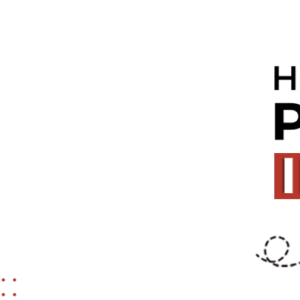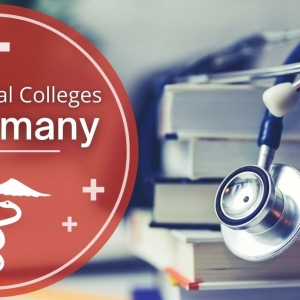TOP 3 UNIVERSITIES FOR ENGINEERING IN GERMANY
Table of Contents
Germany is an excellent place for young students to pursue engineering. The country is home to some great universities that are routinely ranked among the finest in the world and operates a huge number of industrial leaders. Local institutions have close relationships with these businesses, and many of its alumni have gone on to successful careers in several of them. Furthermore, you will get the opportunity to have an unforgettable experience in a varied and active country like Germany.
Germany is a haven for engineers, with a plethora of manufacturing firms. More than eight engineering institutions in Germany are ranked among the top 100 in the QS Global Rankings for Engineering and Technology in 2021. Overall, the number of specialities such as automotive engineering, car engineering, and so on, as well as research and development and technical developments given at engineering institutions in Germany, are reasons why students want to study in Germany.
International students may anticipate the greatest education supported by cutting-edge engineering infrastructure at public institutions with minimum expenditures and heavily subsidised fees.
As the median salary of engineers in Germany rises, the country is becoming a popular destination for students looking to pursue a career in the profession, with a wide range of opportunities accessible.
Engineers in Germany may find work at BMW, Volkswagen, Daimler, Samsung, Siemens, and Sony. They are all significant German corporations that are always in need of engineers.
In addition, automotive and mechanical engineering have long been taught in German institutions. Around 5,000 qualified mechanical and automobile engineers are needed in Germany. Mechanical engineers make around 40,000 to 45,000 EUR gross at the start of their careers.
However, in recent years, biomedical, robotic systems, and energy science engineering have gained traction.
If you are preparing to take on the challenge of studying engineering in Germany, you may want to consider the finest colleges. There are several engineering schools, but a handful stand head and shoulders above the others. This article covers the top 3 engineering schools in Germany for Indian and international students. To make this even more interesting and informative, we are covering Courses offered in the universities, Fee Structure of the universities, Entry Requirements of the universities, Scholarships in TUM for international students, FAQ BY the STUDENTS and placements offered. These universities are among the preferred choices by international as well as Indian students for pursuing Masters in Germany.
Technical University Munich (Technische Universitat Munchen)
The Technische Universitat Munchen (TUM) was founded in 1868 and is consistently regarded among the world’s greatest institutions. Engineering degrees are among the most popular at this university.
At all academic levels, the college provides study programmes in a wide range of engineering fields. The Technical University of Munchen is a dream for any ambitious future engineer since it is home to many notable researchers, provides flexible and highly research-oriented degree programmes, and is located in an industrially developed location.
Engineering Courses offered: Courses offered in English in the field of engineering at TUM include Computational science and Engineering, Power Engineering, Civil Engineering, Aerospace engineering, Software Engg, Neuroengineering, Electrical Engg & IT, Material science, Civil, Games Engg, Communications Engg, Environmental Engg, and engg among others. These are all masters degrees.
Course Fee at TUM
TUM does not charge tuition. However, students must pay a student union charge and a semester ticket price twice a year for the duration of their studies. Some master’s level executive programmes may charge students extra fees.
The fees for all courses are the same, but vary depending on school location:
Campus Fees (EURO)
Euro 144.40 in Munich, Garching, and Weihenstephan, at Straubing Euro 62.00, Heilbronn 92.00
Entry Requirements or TUM Admissions Procedure
Admission to the Technical University of Munich is extremely tough, with just 8% of applicants accepted. The University accepts students through semester-based admission and offers around 179 degree programmes. Most degree programmes accept new entering students only during the winter semester
Basic documentation is required:
- Transcript of Achievement
- Language Proficiency Rating
- Score on the Aptitude Test
- Entrance Examination
- Visa
- Proof of Medical Insurance
- Certificate of VPD
- Essay
- GRE and GATE results
- Working knowledge (for certain program)
- Work Portfolio
- Motivational Letter
- Recommendation Letter
- Certificates in Relevant Extracurricular Activities
Scholarships at TUM
TUM Graduate School provides bridge funds and completion awards rather than full scholarships. PhD applicants, on the other hand, should apply for scholarships from external suppliers such as the DAAD and other foundations. The following scholarships in Germany are offered directly from the TUM.
TUM Graduate School provides bridge funds and completion awards rather than full scholarships. On the other hand, PhD applicants should apply for a range of scholarships from external sponsors such as the DAAD and other foundations.
Placements at TUM
Job and internship opportunities are posted by TUM institutions and department heads. Outside of the university, the Alumni & Career site features a variety of fascinating job opportunities. Companies utilise the site to advertise college jobs, internships, and other student opportunities.
Those who have studied Management, Finance, Accounting, Sales, and Business Development at the Technical University of Munich receive the highest yearly salary of up to 1,23,000 euros.
FAQs About TUM
TUM provides study orientation, further education courses, diplomas, doctorate programmes, and much more in addition to bachelor’s and master’s degrees in a variety of areas.
Yes, one needs to compulsorily have a health insurance In order to study in Germany. You must put up this before enrolling at a university.
KIT, Karlsruhe Institute of Technology
It is one of Germany’s eleven “Universities of Excellence.” It is one of Europe’s major scientific and research institutions, with approximately 25,000 students enrolled. Around 5,300 foreign students make up the student population, adding to the institute’s broad mix. The Karlsruhe Institute of Technology provides programmes in over a hundred fields with a modern approach at various levels of study, mostly in the sciences and humanities.
With an acceptance rate of 20-30%, the university maintains an extremely stringent entrance criteria. The majority of programming are available in German. There are just a few foreign programmes that are held in English. To study in Germany, international students must get good exam results.
Programs at the Karlsruhe Institute of Technology
The University of Karlsruhe offers 107-degree programmes in high-demand sectors. In the sciences and humanities, bachelor’s, master’s, and doctorate degrees are available.
The university is divided into 11 departments. The university offers 18-degree programmes in English. There are two degrees available, with certain study options taught in English. International schools that offer master’s degrees in English include the Hector School, Karlsruhe School of Optics and Photonics, Graduate School for Climate and Energy, and BioInterfaces International Graduate School.
Entry Requirements for the Karlsruhe Institute of Technology:
Applicants can apply for admission to the Karlsruhe Institute of Technology using the Online Application Portal. After completing the application, candidates must print it and return it to the university’s foreign office, along with the appropriate documentation. The university follows a semester-based calendar for applications and the intake seasons are separate for summer and winter.
Document Requirements for Admission:
- Application Completed
- Transcripts from Official Sources
- University Qualifications for Undergraduate Admissions
- Bachelor’s Degree Required for Graduate Admission
- If necessary, English/German translations are provided.
- LOR: There are two LORs (Graduate)
- Purpose Statement/Essay
- 3.0 out of 4.0 (83-86%) is the minimum necessary GPA.
- Interview (Graduate) (Graduate)
- Resume
- Financial declaration and verification
Scholarships at the Karlsruhe Institute of Technology
From grants, scholarships, and loans to on-campus jobs, Karlsruhe Institute of Technology Financial Aid offers several aids to students who do not have a solid financial situation or who require financial assistance. There are primarily two sorts of financial assistance:
General Financial Aid: All overseas students in financial need are eligible to apply.
STIBET Financial Aid is available to international students who are nearing the end of their studies and have enrolled or are about to register for their thesis. Aid is given to students who have suddenly fallen into financial difficulty and have no other way of supporting themselves.
Both aids are available for up to 6 months. Financial assistance of at least 250 EUR per month is provided. To be eligible, learners need to have a minimum grade point of 2.5.
Scholarships: The thirteen primary state and federal financing agencies are as follows:
- Academic Foundation of the German people
- Friedrich Ebert Stiftung
- Cusanuswerk Episcopal Study Funding
- Evangelisches Studierendenwerk eV Villigst
- Friedrich Naumann Foundation
- Avicenna study program
- Ernst Ludwig Ehrlich Studienwerk
- Hans Böckler Foundation
- Konrad Adenauer Foundation
- Heinrich Böll Foundation
- Hanns Seidel Foundation
- Rosa Luxemburg Foundation
- Klaus Murmann Study Fund
Work and Study in Germany
Part-time employment is an excellent approach to meet a student’s day-to-day financial demands. Students at KIT can work while studying. Students may work for a total of 120 full days or 240 half days. Working more than 20 hours per week, on the other hand, is incompatible with a full-time study, as is often given by universities in Baden-Württemberg. A student can earn between EUR 5 and EUR 15 per hour, or around EUR 450 per month. One-year tax-free earnings without social security issue – EUR 8,354.
Placements at the Karlsruhe Institute of Technology
The Career Center service assists students in their employment and internship searches. It also allows students to apply for jobs, write applications, attend career fairs, network, and get career advice. Vector, Zeiss, Porsche, ABB, Coca-Cola, Bosch, Deloitte, and others have recently hired university grads. The chart below depicts the salary that alumni earn after graduating from Karlsruhe University.
The Karlsruhe Institute of Technology prepares graduates for employment in Germany. In order to educate students from a future-oriented viewpoint, the institution offers 70 career-oriented programs at the undergraduate and graduate levels. If your selected program is provided in English or you are fluent in German, the institution is unquestionably a superb study abroad choice.
FAQs About KIT
Yes, the Karlsruhe Institute of Technology offers a few worldwide English-language degree programmes.
In the QS World University Rankings 2022, Karlsruhe Institute of Technology is rated #136. It is one of Germany’s leading scientific institutes.
The Technical University of Berlin
It is one of Germany’s leading technical and research universities. TUB presently has 5,821 undergraduates, 3,667 postgraduates, and 487 PhD students. International students flock to the university in large numbers. International students make up 27% of the overall enrollment, while international personnel make up 9% of the workforce.
TU Berlin offers 115 undergraduate and graduate programmes. Only 25 master’s degree programmes at TU Berlin are taught in English. Students must have some understanding of the German language in order to apply for undergraduate programmes. Engineering, Architecture, and Built Environment are some of the top university disciplines.
Programs at the Technical University of Berlin
The Technical University of Berlin has 49 graduate programmes and 89 postgraduate programmes. There are numerous postgraduate programmes offered in English. All undergraduate programmes are taught entirely in German.
The engineering programmes taught at TU Berlin include: Biomedical engineering, computer systems engineering, Civil System Engineering, energy engineering, Global production engineering, Industrial engineering and management, Process energy and environmental systems engineering, and space engineering. From the website of the university, you can find out for more programs if updated.
Admissions/Entry Requirements to the Technical University of Berlin
More than 20,000 students from all around the world attend TU Berlin. When applying for admission to the Technical University of Berlin, students should follow the steps outlined below and arrange the documents as mentioned for submission to the university.
Application Procedure for TU Berlin
Step 1: Submit the application via uni-assist by the deadline.
Step 2 – Pay the Uni-assist handling fee of 75 euros for a single course and 30 euros for each subsequent course.
Step 3: Submit the necessary paperwork.
- University degree certificate and transcript are required for PG admission.
- ECTS qualification
- Summary of disciplines studied with ECTS credit points and GPA
- Proof of English/German language proficiency.
Technical University of Berlin Scholarships
In order to financially help its students, Technical University Berlin offers a variety of scholarships to both its domestic and international students. Here is a list of some of the scholarships in offered to international students in Germany:
|
Scholarships |
Grants |
|
Deutschlandstipendium |
Provides financial and non-material support to high-achieving international students. Grants 300 euros per month. |
|
Friedrich Ebert Foundation |
Grants 830 euros per month to 40 students each year for academics and towards social democratic values. |
|
Erwin-Stephan-Preis |
Given biannually to students who complete their course quickly with excellent grades. |
|
DAAD Study Scholarships |
Awarded to Master’s Degree students. Grants :
|
|
PROMOS |
Partial scholarships are awarded for abroad internships. Grants between 350-550 euros per month. |
|
ERASMUS+ |
This is an internship scheme. Grants 435-555 euros per day. |
Placements at the Technical University of Berlin
In the year 2022, TU Berlin is rated #111-120 in graduate employability. The average starting wage for graduates of the Technical University of Berlin is €51,000 per year ( 41.36 Lakhs ). Executive Management is the highest-paying career among graduates, with a salary of 22 crore per year.
FAQs About Technical University of Berlin
TU Berlin has four sites, including the Charlottenburg-Wilmersdorf main campus at Ernst-Reuter-Platz. Check out the TU Berlin Campus.
Technical University Berlin is ranked among the top 150 institutions in the world, and it is ranked fifth in Germany (THE 2021 University Rankings).





